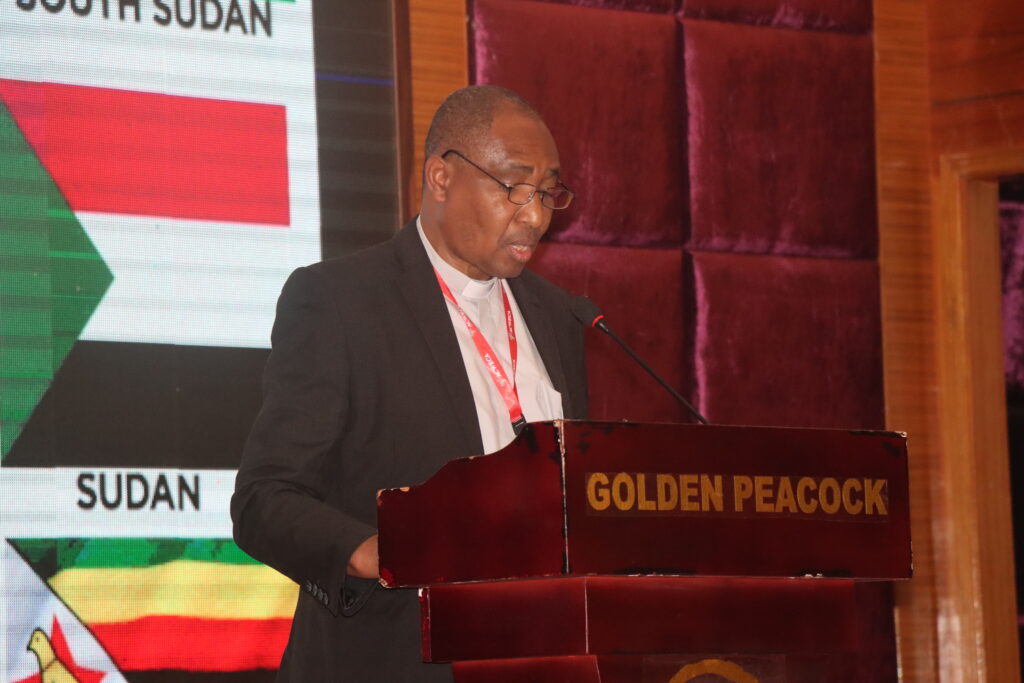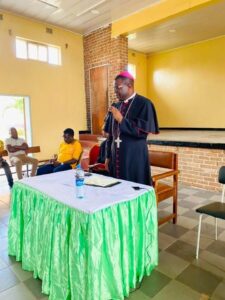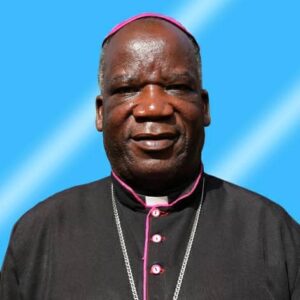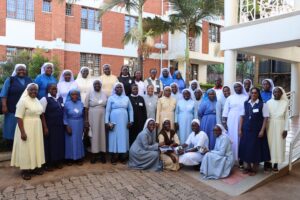ACWECA PLENARY: Association of Catholic Nuns in Eastern, Central Africa is Now “Mature and Credible”

AMECEA Secretary General Fr. Anthony Makunde
Sr. Jecinter Antoinette Okoth, FSSA
At the opening of the 19th plenary assembly of the Association of Consecrated Women in Eastern and Central Africa (ACWECA) which also marks the 50th anniversary since its establishment, the association has been acknowledged to have grown tremendously and is currently “mature and credible.”
In his goodwill message on Monday, August 19, to hundreds of sisters from across the ACWECA region gathered at the Golden Peacock Hotel in Lilongwe, Malawi, Secretary General of the Association of Member Episcopal Conferences in Eastern Africa (AMECEA) Fr. Anthony Makunde said in reference to the association, “What started humbly as AMECEA sisters is now a mature and credible association with structures that coordinate the social, pastoral and spiritual activities of the of women religious in the region.”
He noted that a half-century celebration is an opportunity to examine the past and present and set new goals for the future. Besides, as the religious women celebrate the great milestone the Tanzanian cleric emphasized that their role in the Church is needed more than ever.
“The Church in the region needs the service of religious women and men today more than yesterday. The many pastoral and social works done by women congregations can neither be underrated nor brushed aside,” Fr. Makunde said and narrated further, that the sisters have always carried out “the healing, teaching, and consoling ministry of Jesus with high dedication in the remotest parts of the region.”
He highlighted that sisters are at the forefront of fighting poverty and social inequalities in society, and reminded the people not to “forget sisters who are involved in the risky mission of combating human trafficking in our cities through advocacy and running of rescue centres.”
Fr. Makunde who has been at the helm of the AMECEA Secretariat since 2018, regrets the many times the work of Religious women in parishes and institutions has not been recognized stressing that the AMECEA bishops are appreciative of the work which strengthens pastoral activities in the region.
“The many fruits we are proud of as a church in the region are a product of many hands. The sisters have a key role,” He disclosed.
Sharing the message from the Chairman of AMECEA Bishop Charles Sampa Kasonde of Solwezi Diocese, Zambia, Fr. Makunde reminded the sisters that the ongoing synod on Synodality calls for more collaboration of all the baptized in the mission of the church.
“The synod discussion has acknowledged the general role played by women in general and women religious in particular especially in coordinating Small Christian Communities (SCCs) and engaging in catechetical work,” Fr. Makunde said on behalf of the chairman and narrated further, “These roles are vital in nurturing a synodal church that is more inclusive and participative.”
He acknowledged that the theme of the 19th ACWECA Plenary Assembly which is; “Transformative holistic formation for authentic living towards a deeper evangelization in the ACWECA region and beyond,” responds to the call of the synod delegates as reflected in the synthesis of the first session of the synod on synodality and indeed to the Instrumentum Laboris for the second session slated for October 2024 which has capitalized on formation in all levels.
To engage in transformative formation to wake up the world as Pope Francis invites the Religious to do, the cleric said, “The Sisters’ role in the formation of the faithful can never be replaced by any other group, for you are the main tools of holistic formation.”
He concluded, informing the religious women from the ten ACWECA countries that the AMECEA chairman has called on all women religious in the region to continue working together and consolidating their unity for the sake of Christ and the church as a whole.
“May all the programs of empowerment be a sign of growth and nurturing the gifts that God has given you for the benefit of your Congregations and ministry in the Church,” he said.


